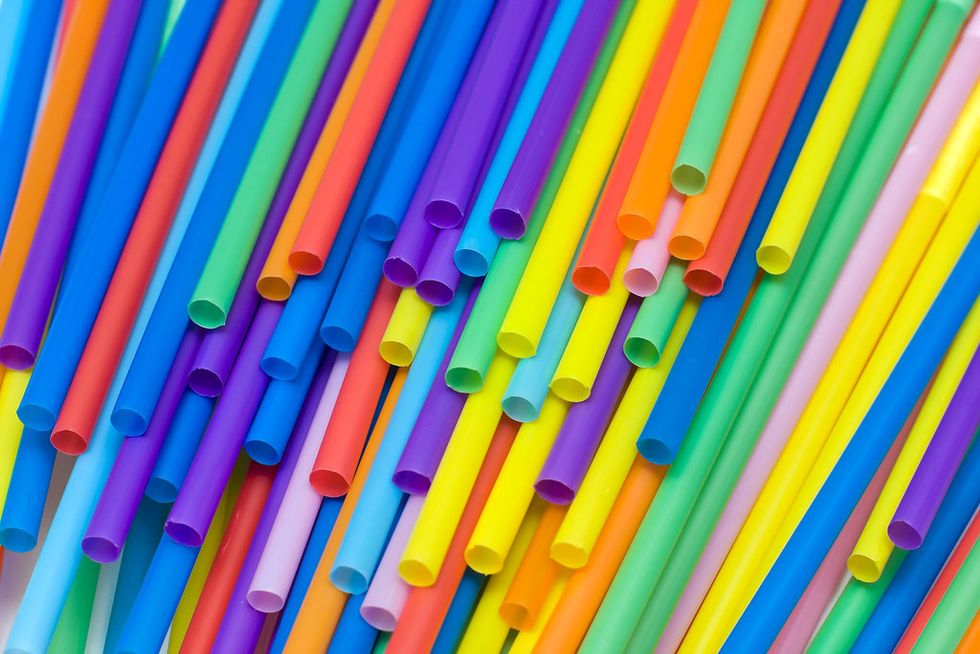If you've been to a coffee shop, restaurant, or grocery store in the past few years, you can't help but notice the myriad of companies that are trying to ban plastic straws. Many popular chains have vowed to put an end to them, including brands such as Starbucks who claim they will completely eliminate straws from all their locations by the year 2020.
The decision to get rid of straws is an aim to protect marine animals, specifically sea turtles. Due to the size and structure of straws, they can become lodged into a sea turtle's nose or even mistaken for food. Since these creatures have an essential role in maintaining the health of our oceans through sustaining the coral reef system and playing a role in the food web, it's important that we realize our responsibility to protect them.
As someone who strongly advocates for the health and safety of our environment, I'm obviously glad that people are finally starting to take action on pressing issues such as plastic pollution. Any step we take to support the environment is a good step, and I do not want to diminish the great work of many people in helping save the planet.
However, I do feel that some misinformation has been spewed in relation to straws and sea turtles. Straws are not actually the main issue.
Among the millions of tons of waste that enters our oceans, straws realistically only account for .03% of this pollution. The original statistic that gained so much publicity about straw usage in the United States claimed that Americans use 500 million plastic straws per day, but no one mentions that this statement comes from a nine-year-old child who, although may be correct, should not serve as a credible source alone.
In reality, almost fifty percent of plastic pollution in the oceans comes from fishing nets. Many animals, including sea turtles, are caught in fishing nets accidentally. Approximately forty percent of all sea animals caught in nets are deemed by-catch and simply thrown away for dead. Even the few who are released back into the water are usually injured and unable to sustain themselves for long after. This process does not just affect sea turtles, but whales, seals, and dolphins as well.
But these issues are not getting as publicized because these are steps that we as a society may not be willing to take yet. Trying to combat this issue means taking larger steps than simply switching from straw to sippy cup, it means fighting industries that refuse to use sustainable methods, it means perhaps reducing our seafood consumption.
I'm not advocating for everyone to completely boycott fish and attempt to bypass the straw ban that cities such as Seattle have already implemented into law. I'm glad that people are beginning to finally focus on eliminating wasteful plastic that has clogged our waters for decades, but I do not want us to think that leaving behind a straw can fix all of our environmental problems.
There are so many ways we can fight against climate change, but taking that extra step involves educating yourself on the real issues. There are other products we consume on a daily basis that can do considerably more damage. Replacing these everyday items may not result in something as aesthetically pleasing as a metal straw for your brand new mug, but it could be more significant in the grand fight against pollution.
- Our Climate-Changing World ›
- Banning Straws Is A Band-Aid To Our Ocean Problem ›
- The Dangers Of Climate Change ›
- Plastic Straws Only Make Up 0.03% Of The Ocean's Plastic But That ... ›
- Why We Can't Ban Plastic Straws ›
- A Plastic Straw Ban Alone Won't Save Our Environment ›
- yeah straws suck, but the other plastics in our oceans suck worse ›
- Plastic Straws Aren't The Problem ›
- We Can Ban Plastic Straws, But America's Eating Habits Are The ... ›
- Do plastic straws really make a difference? ›
- Banning plastic straws won't solve plastic pollution problem: scientists ›
- Plastic Pollution is a Real Problem—and It Won't Be Solved by Straw ... ›
- Straws Aren't the Real Problem. Fishing Nets Account for 46 Percent ... ›
- Plastic Straws Are Not The Real Problem, Folks – ›
- Plastic Straws Aren't the Problem - Bloomberg ›






















